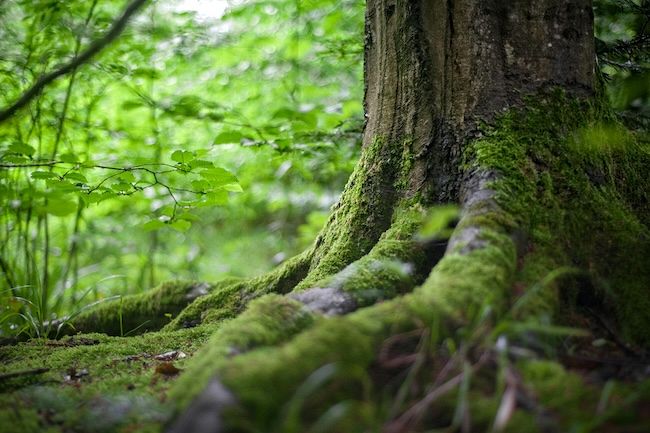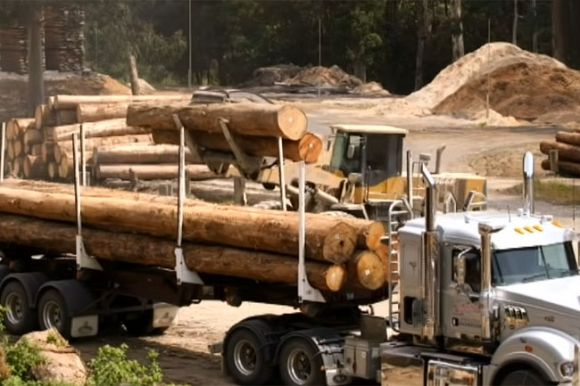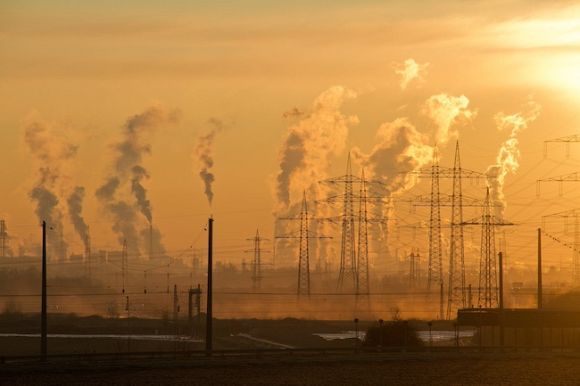The curious case of how Costa Rica’s long-dead national hero, Willliam Le Lacheur, links to a possible model for islands and low-income nations to combat climate change. Ross MacRae and Max Ernst report.
WILLIAM LE LACHEUR is a national hero in Costa Rica.
Born in the United Kingdom and of humble origins, he became a sea captain and established the first direct trade link for coffee between Europe and Central America.
Docked in Puntarenas, a city on the Pacific side of Costa Rica, Le Lacheur transported the coffee to London without intermediaries, strengthening economic ties between Europe and the coffee-producing nation.
The enterprise was so profitable that he rapidly diverted all his ships from the fruit industry to trade with Costa Rica. This was in a time of global recession when the newly independent country had trouble establishing itself economically. Thanks to Le Lacheur, however, Costa Rica managed to grow its economy — but his story doesn’t end there.
William Le Lacheur was not only a tradesman and businessman in the eyes of the Costa Ricans, but also a man who helped create the Costa Rica we know today.
When Le Lacheur first arrived, the new country relied heavily on coffee as its primary resource for trade and having to pass through intermediaries hindered trade. Le Lacheur’s beelining between Costa Rica and the United Kingdom allowed the young country to bolster its economy and retain more of the profit made from trading.
His positive effect on Costa Rica does not end there, however. Rather than exchanging currency for coffee, Costa Rica requested that Le Lacheur bring over goods, such as furniture, farm machinery and sewing kits. As this was all occurring during a global economic recession, Costa Rica decided to forgo receiving money in exchange for its goods and seized the opportunity to reinforce its coffee production and standard of living.
His relationship with the tropical country continued to deepen thereafter. In the 1850s, Costa Rica was subject to an attack by American filibuster, William Walker.
Walker was a mercenary who organised attacks on South American nations so as to further the United States’ regional influence. Le Lacheur helped repel this invasion by allowing the Costa Rican Government to use his ships to transport soldiers and military supplies and brought the Costa Rican army to where the invaders were stationed.
Since the soldiers didn’t have to trek through the dense, volcanic jungle, they were in full form when they arrived and promptly defeated Walker’s army. In addition, he also brought over young Costa Ricans to London to be trained as apprentices for his business, allowing Costa Ricans to gain the talent and experience to run their economy on their own without the need for foreign intervention.
Le Lacheur wasn’t from London though. He was from the small island of Guernsey, a territory with only around 63,000 people living there. As one saying goes, it is one of several “morceaux de France, tombés dans la mer et ramassés par l’Angleterre” (islands that were previously under French control but are now in the hands of the British).
With Costa Rica’s bicentennial coming up, the Government wanted to commemorate significant dates and anniversaries linked to its independence. Therefore, the Costa Rican government contacted the government of Guernsey to invite it to a ceremony to unveil a memorial to Le Lacheur.
Our interview with Jonathan Le Tocq, lead Member for External Relations in Guernsey’s Parliament, revealed that things kicked off from there:
We decided that we would also plan to mark Le Lacheur's life and connections with Costa Rica here in Guernsey with a plaque at his birthplace and in naming a new housing development park after him.
The Guernsey Chamber of Commerce began to take a serious interest in establishing stronger economic and business links. As a result, this year, when both the London memorial and the Guernsey plaque were unveiled, government and industry representatives from both countries were present at all the events.
Costa Rica is well-known for being the first tropical country to reverse deforestation and has a well-developed ecotourism industry.
Costa Rica’s green credibility interested the Guernseyman, as it seemed like there was potential for a carbon offsetting scheme.
Said Le Tocq:
At COP26, which I attended, there were several seminars which brought together representatives from and experts working with small island jurisdictions, focussing on their discrete needs and issues.
One common theme was the speed at which such communities could tackle climate change and achieve net zero, which would in the vast majority of cases require a longer time frame than larger states (unless assisted or subsidised by such larger states) largely due to economies of scale, plus the particular issues of being by very nature isolated, island/maritime communities.
As a result, it was generally considered that schemes such as carbon offsetting and other mitigating measures would be necessary so as to help provide an achievable 'multi-step' approach for small island communities.
Guernsey has already taken some major steps towards net zero:
Guernsey decided over 20 years ago to make a major change in energy production by investing in an electricity cable to France (around 45 kilometres away), thus removing the dependency on its locally generated, carbon-fuelled plant.
Over the course of that time the import contract between the island and EDF in France has been negotiated to the extent that 100% of the power purchased is generated by renewables. As local generation currently amounts to no more than around 20% of the total annual power required, this means that Guernsey is well on the way to being carbon-free in terms of electricity supply.
In addition to this we are actively investigating partnerships for the production of off-shore wind, solar and other renewables which could in the next decade or so make Guernsey a net exporter of renewable energy.
Through these measures, energy has gone from the second largest source of greenhouse gas emissions (25.8%) in 1990 to the second smallest (5.3%) in 2020.
However, some sectors are harder to decarbonise, and, as Le Tocq explained earlier, the insular nature of Guernsey can delay and complicate this transition. This is where Costa Rica could potentially come in: by buying carbon offsets from Costa Rica, Guernsey, Guernsey businesses could remain on track to hit net zero by 2050.
In 2019, the Costa Rican ambassador to the United Kingdom, Rafael Ortiz Fábrega, came to Guernsey to discuss a reforestation scheme in Costa Rica to counteract Guernsey’s carbon emissions, effectively leading to the island having net-zero emissions once enough trees are planted.
If these ideas bear fruit, they could set a precedent in helping disadvantaged territories achieve net zero. The talks between Guernsey and Costa Rica could lead to a model for island and low-income nations across the globe if anything does come of them.
One detail complicates things though: Guernsey is not a nation.
The island, officially called the "Bailiwick of Guernsey" is a Crown Dependency. The oldest possession of the Crown, it has a unique legal status, wherein it is neither part of the United Kingdom nor a country in its own right.
Explained Le Tocq:
They have had their own island governments since separation from Normandy in 1204 and have never been governed from the UK. Nevertheless, prior to the Second World War, the bailiwicks of Jersey and Guernsey had international identities which were, to a great extent, seen as merged with the United Kingdom. In the aftermath of the war, a review took place which resulted in 1950 with the Bevin Despatch from the UK Foreign Office.
As a result, thereafter, the islands were no longer automatically included in international treaties to which the UK signed up, but their respective governments could choose to do so after appropriate consultation had taken place.
Further development of a distinct "international identity" for the islands occurred in successive decades, allowing for "entrustment" (a system whereby the islands can negotiate certain international agreements distinct from and separate to the UK) and in 2010 an "international identity" framework was agreed which helped establish the protocols for this, explained Le Tocq.
Jonathan Le Tocq was very vague about the future of Costa Rica-Guernsey relations, saying, “No formal negotiations are currently being undertaken, however, this is not being ruled out for the future”.
However, he was intent on their growth:
“We have hopes that we can learn from Costa Rica's success and find synergies, which could enable businesses to work together for our mutual benefit, investing in renewable energy and sustainable solutions.”
Wherever these talks may lead remains a mystery, however, what is clear is that Le Lacheur’s story is far from over.
Ross MacRae is currently studying geography at the University of Strasbourg.
Max Ernst has worked for media project, The European Correspondent. He is interested in writing articles with an international perspective. See more from Max HERE. You can follow Max on Twitter/X at @StrasbourgDisp1.
Related Articles
- Evidence debunks 'contemptible' climate lies
- Consumers key to tackling climate crisis
- New book affirms need to save humanity from climate crisis
- Fight or flight: Adapting to the climate crisis
- Despite Monckton's climate denial, the world is still burning
 This work is licensed under a Creative Commons Attribution-NonCommercial-NoDerivs 3.0 Australia License
This work is licensed under a Creative Commons Attribution-NonCommercial-NoDerivs 3.0 Australia License
Support independent journalism Subscribe to IA.













